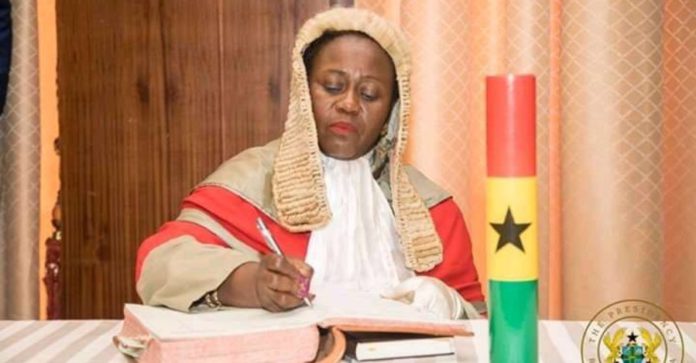Former Director of the Ghana School of Law, Kwaku Ansa-Asare, has defended the participation of Acting Chief Justice Paul Baffoe-Bonnie in the ongoing Supreme Court case concerning Chief Justice Gertrude Torkornoo.
According to him, all justices of the apex court potentially stand to benefit from the Chief Justice’s removal, not just the Acting Chief Justice, Paul Baffoe-Bonnie.
His comments come in response to an objection raised by former Attorney General Godfred Yeboah Dame, who argued that it was improper and without precedent for an Acting Chief Justice to empanel and preside over a case directly involving the substantive Chief Justice.
The Supreme Court, however, unanimously dismissed the objection after a brief recess, allowing the proceedings to continue under Justice Baffoe-Bonnie’s leadership.
Speaking in an interview on Joy FM’s Top Story on Tuesday, May 6, Mr. Ansa-Asare argued that it is misleading to single out Justice Baffoe-Bonnie, as the potential benefit from the Chief Justice’s removal extends to all members of the Supreme Court.
“Removing the head, who is imbued with constitutional wisdom and the nuances of justice administration, merely because the person stands to benefit, is not justifiable. All the justices of the Supreme Court stand to benefit from the removal of the Chief Justice. Once you are a Justice of the Supreme Court, you are eligible for consideration for the top job,” he explained.
He added that even a High Court judge could be appointed Chief Justice if deemed fit by the President, given the constitutional flexibility provided under Article 144 of the 1992 Constitution. However, in practice, the most senior justice is typically considered.
Meanwhile, in a significant ruling on Tuesday, the Supreme Court, by a 3–2 majority decision, dismissed an application seeking an injunction against proceedings to consider petitions for the removal of Chief Justice Torkornoo.
Justices Henrietta Mensa-Bonsu and Ernest Gaewu dissented, while the majority held that the petitions should proceed.
The Court has announced that the full reasoning behind its decision will be made public on May 21, 2025.
ALSO READ:



